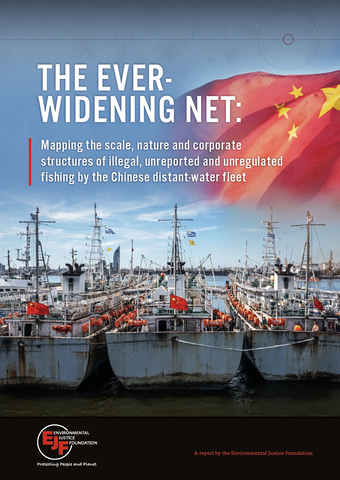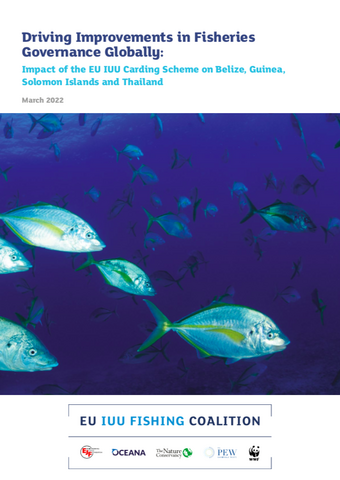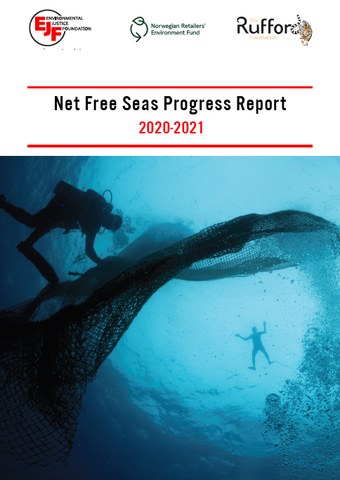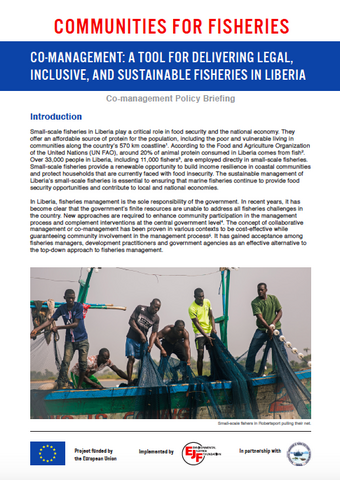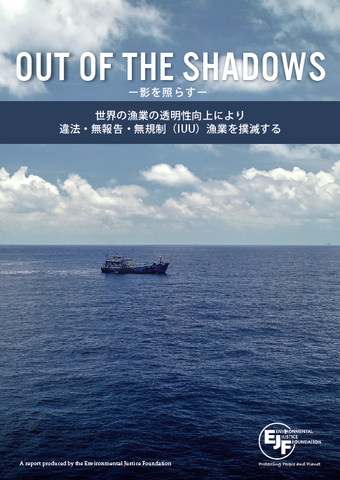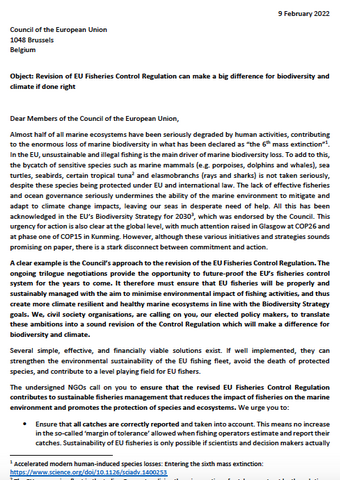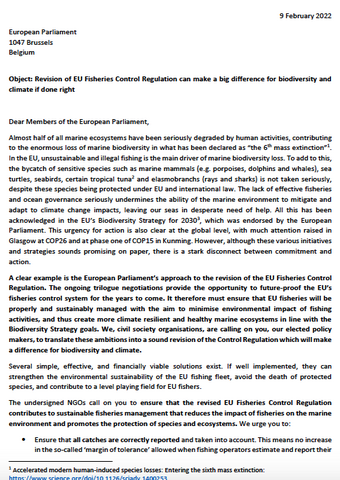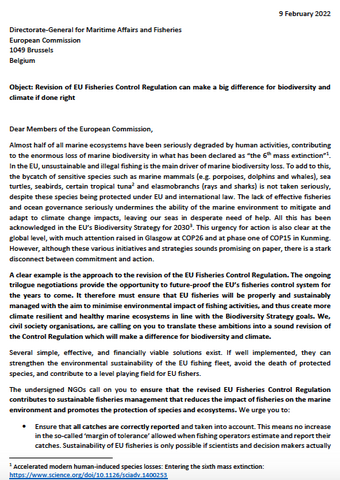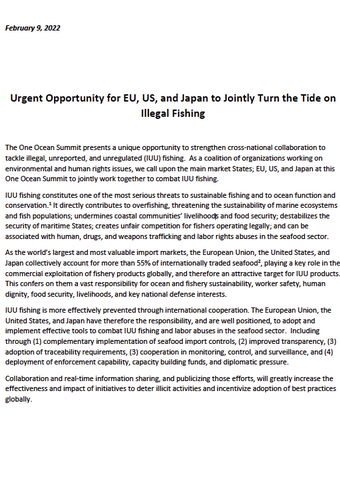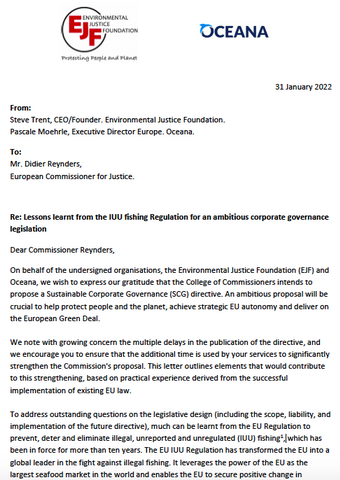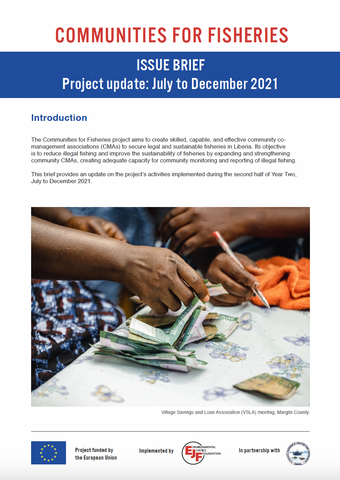The ever-widening net: Mapping the scale, nature and corporate structures of illegal, unreported and unregulated fishing by the Chinese distant-water fleet: This report presents a comprehensive analysis of China’s vast, opaque and, at times illegal global fisheries footprint, with the specific aim of informing appropriate and effective responses by fisheries decision-makers in China and globally.
Putin's war: fuelled, funded and facilitated by fossil fuels: Millions of Ukrainians have now fled their homes as a result of Vladimir Putin’s invasion. At the same time, around the globe, the intensifying impacts of the climate crisis are driving millions of people from their homes. There is one common thread to both of these events: they are driven by the addiction of wealthy countries to fossil fuels.
Driving Improvements in Fisheries Governance Globally: Impact of the EU IUU Carding Scheme on Belize, Guinea, Solomon Islands and Thailand: The European Union's IUU Regulation is designed to prevent and stop the flow of illegally caught fish from entering the EU market. This report highlights instances where this EU carding scheme has prompted positive changes in fisheries governance.
Net Free Seas Progress Report 2020-21: The Net Free Seas Progress Report summarises achievements, challenges, and lessons learned from the implementation of the Net Free Seas project between 2020-2021. So far, the project has worked with over 100 artisanal fishing communities across Thailand to collect and recycle 35 tonnes of discarded fishing nets. รายงานความคืบหน้าของโครงการทะเลปลอด (เศษ) อวน (Net Free Seas) ปี 2563 - 2564 รวมสรุปการดำเนินงาน ความสำเร็จ ความท้าทาย และการถอดบทเรียนของโครงการ โดยในปัจจุบันโครงการได้ร่วมงานกับชุมชนประมงพื้นบ้านกว่า 100 ชุมชนในประเทศไทย จัดเก็บและรีไซเคิลเศษอวนประมงไปกว่า 35 ตัน
Co-management: a tool for delivering legal, inclusive, and sustainable fisheries in Liberia: Small-scale fisheries in Liberia play a critical role in food security and the national economy. This policy briefing explains how co-management can make an important contribution to the sustainable management of these fisheries.
Revision of EU Fisheries Control Regulation can make a big difference for biodiversity and climate if done right: open letter to the Council of the European Union: NGOs call on the Council of the European Union to ensure that the revised EU Fisheries Control Regulation contributes to sustainable fisheries management, reducing the impact of fisheries on the marine environment and promoting the protection of species and ecosystems.
Revision of EU Fisheries Control Regulation can make a big difference for biodiversity and climate if done right: open letter to the European Parliament: NGOs call on the European Parliament to ensure that the revised EU Fisheries Control Regulation contributes to sustainable fisheries management, reducing the impact of fisheries on the marine environment and promoting the protection of species and ecosystems.
Revision of EU Fisheries Control Regulation can make a big difference for biodiversity and climate if done right: open letter to the Directorate-General for Maritime Affairs and Fisheries: NGOs call on the Directorate-General for Maritime Affairs and Fisheries to ensure that the revised EU Fisheries Control Regulation contributes to sustainable fisheries management, reducing the impact of fisheries on the marine environment and promoting the protection of species and ecosystems.
Urgent opportunity for EU, US, and Japan to jointly turn the tide on illegal fishing: As a coalition of organisations working on environmental and human rights issues, we call upon the main market states; EU, US, and Japan to work together at the 2022 One Ocean Summit to combat illegal, unreported, and unregulated fishing.
Lessons learnt from the IUU fishing Regulation for an ambitious corporate governance legislation: The EU Commission's Directorate-General for Justice, Consumer Rights and Gender Equality will soon set rules for companies to protect human rights and our natural environment. In this letter on sustainable business legislation, Oceana Europe and the Environmental Justice Foundation address EU Commissioner Didier Reynders and propose to apply the benefits of the EU regulation against illegal fishing to the SCG framework.
Communities for Fisheries project update - July-December 2021: The EU-funded Communities for Fisheries project aims to create skilled, capable and effective community co-management associations (CMAs) to secure legal and sustainable fisheries in Liberia. This brief summarises the progress made under the project from July to December of 2021.
